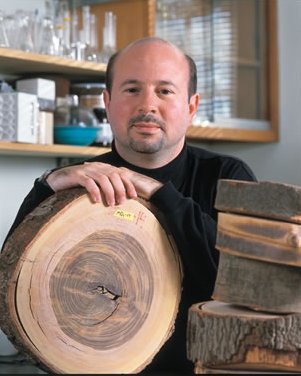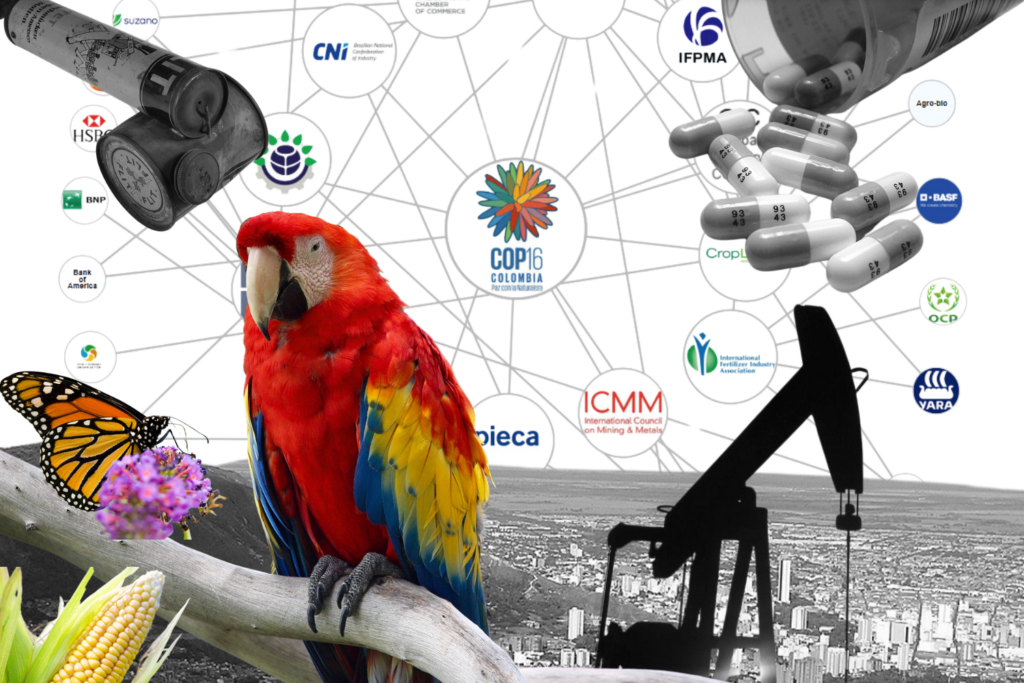The DeSmog UK epic history series introduces you to the creator of the climate change hockey stick graph and the man forever in the sceptics’ crosshairs. Read PART ONE of the most intimate interview with Professor Michael Mann ever published.
Professor Michael Mann is, through the sceptic looking glass, an accomplished dissembler, a manipulator of science, a fraud, and a threat to the American people.
He is reviled, attacked and harassed. A former CIA agent has contacted his colleagues looking for dirt. The hacker who broke into the University of East Anglia servers during Climategate was searching for his data and emails, among other things.
The hockey stick graph, which Mann helped create and showed that the rapid rise in global temperatures over the last decades has been unprecedented in human history, has become the totem the sceptics are most desperate to tear down.
If Mann is any of these things, then he is the most convincing con artist the world has ever seen, because to the outside world he is living the American dream.
Family Life
Mann is a distinguished professor and director of the Earth System Science Center at Pennsylvania State University. He is married to Lorraine, a cell biologist also working at the university. The two met at an event in an amphitheatre in Charlottesville in Virginia and married the following year, in the summer of 2003 on Long Island Harbour, New York.
They live with their daughter in a 3,300-square-feet, three-bedroom detached house in Pennsylvania, which they bought with a mortgage for $600,000 in 2005. Mann now earns $150,000 a year through his professorship, as well as around $30,000 from talks and events.
He follows American Football and each year watches the UC Berkeley College game against rivals Stanford who, he tells me, “often pummels us”.
Mann will tell you everything about his life, his work and his finances if you ask him politely; he has, over the years, come to enjoy the media spotlight.
“My daughter thinks it’s pretty cool that Daddy is often on TV. She knows that it’s a little different from her friends,” he beams. “But I’ve been able to shield them, her especially, from the nonsense and the uglier episodes.”
Middle Class American
Mann is like millions of middle class Americans in that his family fled destitution and persecution, but were able to prosper through hard work and strong ethics in the Land of the Free.
His father’s grandfather was a newspaper merchant who fled Ukraine during increasingly deadly pogroms, while his mother’s family were forced to flee their home on the Polish border with Imperial Russia because of the tide of violent anti-semitism.
His great-grandfather came through Ellis Island and, once in America, won a scholarship to study medicine at the University of Pennsylvania, after which he became a doctor.
Mann’s father became a maths professor, while his mother grew up in a small town in Katanning, outside Pittsburgh, and moved to Pennsylvania to gain a degree in education.
The family history is steeped in the values of education and hard work. Mann was raised in the college town of Ambrose, Massachusetts, a “progressive enclave”. As a child, he was given freedom to follow his own interests but was never allowed to wander too far from the path of knowledge.
Bipartisan Influence
One of Mann’s earliest memories is escaping the family home in his nappy in search of cookies and calling in at the neighbours’ house. The neighbours were James and Edna Anderson, retired Republicans and staunch Christians.
Mr Anderson was a pomologist, an apple expert, at the University of Massachusetts, and he railed against environmentalists who criticised the new Alar insecticide, believing the chemical was providing food for the poor.
The elderly neighbours “adopted” the young tearaway and taught him the Ten Commandments. Perhaps because they were Christian and Republican, while Mann’s family were Jewish and Democrats, the core values seemed to the young boy to contain some universal truths.
“I had a sort of bipartisan upbringing,” he recalls fondly. “That’s where I acquired some of my ethical foundations, as much from their influence as from my parents’ influence. From an early age I grew up with a belief that it’s important to do good with your life. It is important to try and make the world a better place.”
Schoolwork and education were always highly valued. “In elementary school I was sort of, liked to goof off a bit,” he recalls. During junior high, Mann scored a B in maths for one quarter and was immediately taken to one side by his father for a stern word.
“I remember there being some discussion about what happened. There was a little bit of incentive provided. Maybe a down payment towards a new bike,” he recalls. “I ended up getting an A+ the next quarter.”
Fellow Scientists
While still a high school senior at Amherst High School, Mann competed in a computer programming contest at Western New England University College – and still takes considerable pride at having won the prize.
“What I was really driven by, what the reward really about, was in solving an important problem, solving a difficult problem, and I suppose at some level, there is some, you know, recognition for that: That provides an additional incentive. It’s fun to be recognised by your fellow computer nerds.”
He adds: “What means a lot to me is the recognition I’ve received from my colleagues, awards from my fellow scientists. I can be smeared by charlatans and it sort of washes over me because what really matters to me is how I’m viewed and how my work is viewed by my colleagues.”
If Mann is really trying to fool the world into wasting billions during a recession to pump his research grants then he is seriously jeopardising the love and admiration of his entire family, his wife, and his closest friends.
‘Dead End’
Mann graduated from UC Berkeley and in the autumn of 1989 went to Yale University where he focused on theoretical physics; however, he found himself losing interest with the specific project he was funded to work on.
“I talk about the random path, the random walk – a term that has meaning both in science and in life. It was this random walk and I sort of walked into a bit of a dead end… I just had to back up a little bit and find my way out of it, back into the main part of the maze.”
Many of his university friends were also leaving university to enter Wall Street, where their maths and physics knowledge could be used to create complex derivatives and other financial instruments that would fool American investors, and ultimately the state, out of billions of dollars.
“Anybody with any sort of advanced training in maths and physics could immediately find a job working for an investment firm doing derivatives modelling and some people in my cohort of physics graduate students at Yale at the time did leave for Wall Street to do just that – and made a lot of money doing it.”
The Bigger Picture
The government had just scrapped the super collider project in Texas. Funding for Mann’s specific area of science was significantly reduced. But Mann was not interested in earning millions.
“I was interested in bigger picture problems, solving big picture problems, you know, like the wide-open existential problems of cosmology, e.g. the grand unified theory of physics. I wanted to work on really interesting big picture problems.”
He thumbed the Yale University prospectus and decided to change course; in doing so, he changed the course of his life.
Photo: Penn State University via Creative Commons
Subscribe to our newsletter
Stay up to date with DeSmog news and alerts







